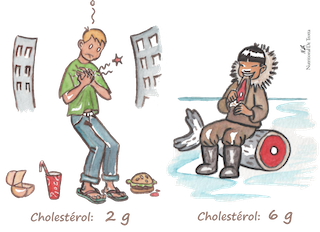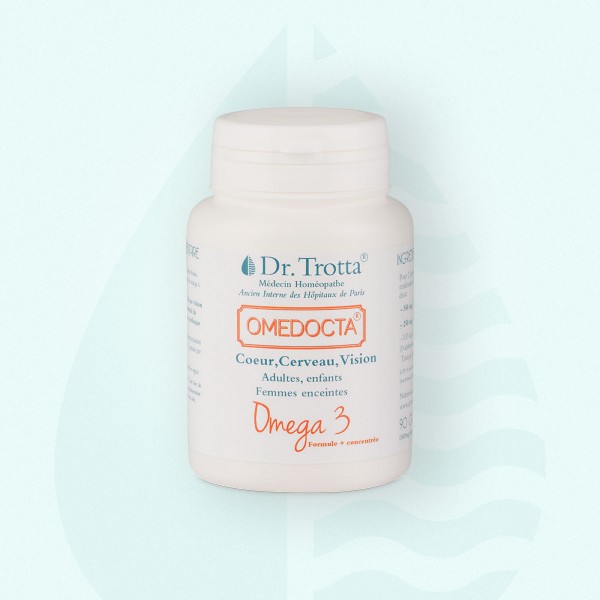Short video explanation of the doctor
Should we be afraid of cholesterol?
IT’S NOT. Cholesterol is the hormone of life.
Explanations from a nutritionist.
Don’t be afraid of cholesterol! A doctor explains why. Please note that this article goes against many preconceived ideas. It’s different from the dominant discourse that floods the media and BigPharma propaganda.
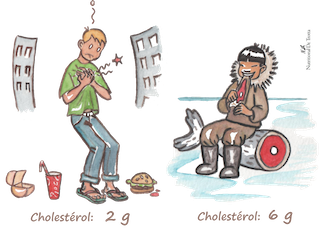 As this drawing shows, on the left you have a Westerner with 2g of cholesterol and on the right an Eskimo with 6g. In the United States in particular, the Westerner suffers 10 times more heart attacks than the Eskimo, even though his cholesterol level is three times lower.
As this drawing shows, on the left you have a Westerner with 2g of cholesterol and on the right an Eskimo with 6g. In the United States in particular, the Westerner suffers 10 times more heart attacks than the Eskimo, even though his cholesterol level is three times lower.
So it’s not cholesterol levels that cause heart attacks, but the quality of that cholesterol.
This is what Dr Trotta will explain to you.
After 12 years of medical studies, 20 years of radiodiagnostic practice and 15 years of nutritional medicine, and having studied and compared the various causes of disease, particularly cardiovascular disease, I can tell you this:
1/ Cholesterol is the hormone of life, the skeleton and immunity.
In fact, cholesterol is the chemical nucleus behind the synthesis of sex hormones.
 Synthesis of vitamin D in the skin, from cholesterol.
Synthesis of vitamin D in the skin, from cholesterol.
(testosterone for men, progesterone and estrogen for women).
It is from cholesterol that vitamin D is synthesized in the skin under the effect of the sun’s rays.
Vitamin D is essential for a strong skeleton and immunity.
However, we are almost all deficient in vitamin D.
So don’t aggravate your vitamin D deficiency by lowering the cholesterol you need to manufacture your vitamin D. It’s just common sense.
From cholesterol is also synthesized cortisol, the natural anti-inflammatory we need.
This cholesterol enables the synthesis of hormones that promote life, the solidity of our skeleton, our natural defense against inflammation and a large part of our immunity.
2/ We are told that high cholesterol is the cause of cardiovascular disease, and that if it exceeds 2 grams, we need to take anti-cholesterol medication. This is not true.
Here’s an excerpt from my book “on cardiovascular disease. on cardiovascular disease.
L’alimentation et les Maladies cardiovasculaires, page 155-157 :
The best studies on the relationship between diet and cardiovascular disease are those by Renaud and de Lorgeril, who demonstrated to the world and especially the Americans, what is now known as “The French paradox”.
(See Le régime santé by Serge Renaud, published by Odile Jacob).
They based their arguments on 6 observations:
1/ It’s not the genes that are the protective factors, but the environment.
The Japanese have the fewest heart attacks in the world. However, if you transfer a Japanese person to the USA, where the highest cardiovascular mortality occurs, and if this Japanese person adopts the American lifestyle and nutrition, his cardiovascular risk will no longer be that of his Japanese genetic origin, but that of his American lifestyle.
And this is true in the opposite direction: Australians with a high cardiovascular risk who emigrated to Crete saw their cardiovascular risk drop to that of the Cretans, one of the lowest in the world along with the Japanese.
2/ It’s not cholesterol that’s the risk factor, but the position of the fatty acids on the fat molecule.
Cretans with cholesterol levels close to those of Americans have 20 times fewer heart attacks. Why is this? Because the Cretans consume olive oil and the Americans saturated fats.
What I told you in the chapter on omega3 is clearly demonstrated in these population-based nutritional studies. People who consume polyunsaturated fish fats (Japanese, Eskimos)
and monounsaturated olive fats (Cretans) and duck fats (south-western France) have the lowest cardiovascular incidence and mortality in the world. On the other hand, people who consume the most dairy products
and therefore saturated fats (Finland, USA, Holland) are those with the highest coronary mortality (heart attack).
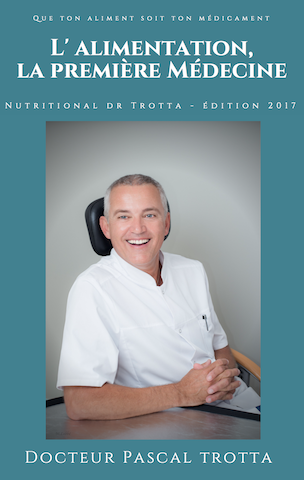 3/ Wine protects the French from heart attacks.
3/ Wine protects the French from heart attacks.
While the French have the same risk factors as Americans (age, blood pressure, cholesterol, smoking, consumption of saturated fats
(especially in northern France), their heart attack mortality is two and a half times lower. Why?
It is interesting to note that most of the medicines prescribed by Hippocrates contained wine.
And that Heberden, the discoverer of angina pectoris, recommended the use of wine in its treatment.
Serge Renaud, studying the WHO’s worldwide statistics on coronary mortality and those of World Drink Trends for alcohol consumption, came to the following conclusion in 1989:
there is a linear relationship between alcohol consumption and coronary mortality.
People who drink the least alcohol have the most heart attacks. And the relationship is even stronger, that of an exponential curve, with wine consumption.
In other words, more than alcohol, it’s wine that protects against heart attacks. This is the “French paradox”: we consume a lot of saturated fats in the north (dairy products) and monounsaturated fats in the south (duck), yet we have more than 2 times fewer heart attacks than Americans, even though we have the same cardiovascular risks.
4/It’s not cholesterol levels that put you at risk of cardiovascular disease, but the quality of the fats in your blood.
It’s not the cholesterol level that should be measured, but the ratio of fatty acids, saturated fatty acids (arachidonic acid AA) to polyunsaturated fatty acids (EPA).
It’s this AA/EPA ratio that determines the risk of cardiovascular disease. In Japan and among Eskimos, it is 1-2, which is normal.
In the United States, it is 20, with maximum cardiovascular risk.
In Europe, it is closer to 1.
To minimize cardiovascular risk, this ratio should be lowered to around 2-5 .
Unfortunately, this measurement is not reimbursed by the social security system, which is a mistake, and so it’s expensive and few doctors prescribe it.
Personally, I don’t measure my cholesterol level (I don’t care), I measure this ratio, which is the true marker of the risk of cardiovascular disease.
5/ For the past 30 years, international cholesterol “standards” have been falling, while the rate of myocardial infarction, which was 150,000/year in France in 1990, has not fallen. isn’t that strange?
It’s as if we wanted more and more people to be afraid of cholesterol (so that more people would take the drug? that’s what we call “widening prescriptions”).
Because a level of 2.8 g was considered normal in 1990, and now above 2 g you’re told you need treatment. It’s like the blood pressure norms that only go down, it’s weird again.
6/ Statins, the main anti-cholesterol drugs, do indeed significantly lower cholesterol levels in your blood , but have side-effects which considerably limit their long-term use.
The accumulation of cholesterol precursors in your bloodstream risksintoxicating your liver and muscles. I have performed many liver ultrasounds for elevated transaminases, which were in most cases due to these anti-cholesterol drugs.
Many patients also stop taking these drugs for muscle pain due to the accumulation of these precursors in your muscles.
And the drop in cholesterol levels in your blood causes a drop in cortisol, vitamin D and your sex hormones, and also increases the risk of depression,Alzheimer’s, diabetes and cancer.
Here, then, are my practical tips for reducing your risk of heart attack and cardiovascular disease, in a completely natural way:
Adopt the Cretan diet: it’s as effective, if not more so, than any anti-cholesterol medication.
Eat less meat and more fish (2 times/week is enough to considerably reduce the risk).
Stop drinking milk. Eat little yoghurt (less than 3 times a week).
If you like cheese, vary between cow’s, sheep’s and goat’s cheeses.
Eat vegetables at every meal. Cook with olive oil but not butter.
Replace margarine, cream and sunflower oil with rapeseed oil (always extra-virgin and first cold-pressed).
Drink red wine at the table in reasonable quantities (2-3 glasses a day).
And if your cardiovascular risk is high and/or you don’t like sardines, take 2 capsules ofOMEDOCTA / day.
Take care!
Dr Pascal Trotta
Former intern at the Hôpitaux de Paris, specialist physician, radiologist, homeopath, Founder of the Institut de Médecine Naturelle de Saint Sébastien.
Paseo de los Fueros 3, 20005 San Sebastián, Basque Country
Request an appointment for a consultation with Dr Trotta:
Tel: 05 54 54 44 43
Nos produits naturels
Need more information and to meet Dr. Pascal Trotta?
Make an appointmentAlso read
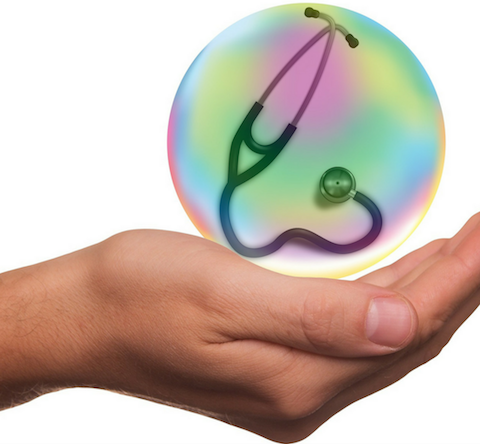
How can you keep your heart healthy and prevent heart rhythm disorders?

High blood pressure: Dr Trotta's natural advice
